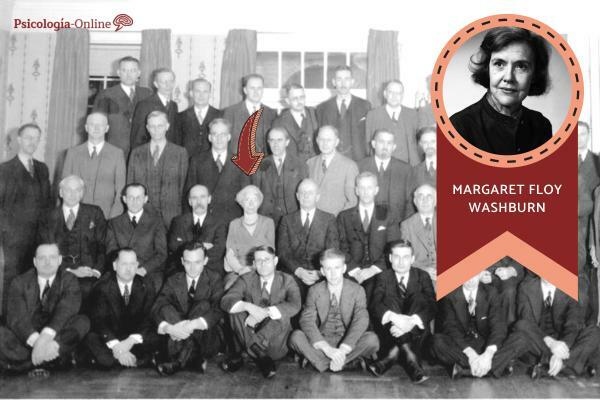
Max Weber is considered the father of modern sociology, as he made great contributions to this field, as well as to economics, politics, and religion. This author analyzed the current capitalist system and the factors that contributed to its origin, as well as had a role in the signing of the Treaty of Versailles that ended the First World War. In addition, his contributions and influence are still valid in the area of sociology today. If you want to know more about this figure, keep reading this Psychology-Online article: Max Weber: biography, theory, contributions and bibliography. Where you will find the most important data of the professional and personal life of the author, as well as the most influential works of him.
Who was Max Weber? Maximilian Karl Emil Weber He was born in the German city of Erfurt on April 21, 1864. He is considered an economist, philosopher, historian, jurist, political scientist and sociologist, standing out for this last facet.
The family atmosphere exerted a great influence on Weber's interests and inclinations, which is why it largely marked the biography of the German. He grew up in a family with seven siblings, he being the oldest,
Since adolescence this sociologist already read authors such as Kant, Schopenhauer, Homer or Spinoza. He studied at the universities of Heidelberg, Berlin and Göttingen. Another remarkable fact from the biography of Max Weber is that in 1882 he entered law at the Heidelberg university, where he had as a teacher his uncle Hermann Baumgarten, author of two works on Spanish history.
Later, in 1890, he got a doctorate in economics with a thesis that obtained the excellent qualification. During this period he served intermittently in military service in Strasbourg and in 1888 he joined the Professional Association of German Economists, focused on the role of the economy as a solution tool for social problems. In it Weber was in charge of researching and writing about the migratory phenomenon in the process of industrialization, work for which he received high praise and established himself as an expert in economics agrarian.
In 1893 he married a distant relative, Marianne schnitger, a feminist and sociologist who researched about the legal protection of women and gender equality through the economic and educational independence, as well as having a fundamental role in the compilation of Weber's writings once this She died.
The following year, the couple moved to Freiburg, at whose university he practiced professor of political economy. Two years later he will continue teaching the same classes but at the University of Heidelberg.
1897 was a difficult year, as an important event occurs in Max Weber's biography: his father dies of him two months after both had a strong argument that was not settled. This fact causes in him states of nervousness and insomnia, so he ends up sinking into a melancholic state, which brings him great difficulties completing tasks as a teacher.
In 1898 he moved away from teaching and he enters a sanatorium Until the following year, once he left this institution, he spends two years traveling with his wife. Upon his return, he resigned his position as a teacher, he only practiced this profession privately, and agreed to work as an editor in a social science archive.
In 1904 he traveled to the United States to participate in the Congress of Arts and Sciences, and it was between this year and the next when the most influential works begin to be published of this figure, being in 1905 the publication of his key essay The Protestant Ethic and the Spirit of Capitalism. In 1912 he tried unsuccessfully to found a left-wing political party between Liberals and Social Democrats.
When the First World War, Weber serves for a time as director of nine Heidelberg army hospitals, he is part of groups whose aim is to maintain the German control in Belgium and Poland, he is a member of the workers and soldiers council and works as a consultant to the German Armistice Commission, what negotiated the surrender of the country through the Treaty of Versailles, ending the war. This commission also assigned him the writing of the Weimar Constitution, in which he included article 48 that allowed the adoption of emergency measures and the promulgation of emergency decrees, since Weber feared the outbreak of the communist revolution in Germany. Finally, this article was used by Adolf Hitler to proclaim martial law and declare himself a dictator.
After the war was over, this sociologist resumes his position as a teacher, first at the University of Vienna and the following year at the University of Munich. At the University of Munich he promotes the first sociology institute of a university in the country. June 14, 1920 he passes away at the age of 56 because of pneumonia.

Image: signing of the Treaty of Versailles
The sociologist applied the methodology of sociology to fields such as politics, law, religion, and economics. His thought is characterized by being antipositivist, hermeneutical and idealistic. This author aimed to understand the interrelation that occurs between the factors that contributed to the founding of social structure, underlining the role of cultural elements and collective mentality or ethics throughout the story.
Weber highlighted rationalization as the key to the development of Western civilization. He identifies rationality based on bureaucracy as the engine of this process. Likewise, Weber considered that human behavior is guided and linked to culture and religion of the place of origin. From this thought, the Max Weber's theory of bureaucracy, by which it establishes the conditions by which the people who hold power legitimize their status of domination and how people submit to it.
This article is merely informative, in Psychology-Online we do not have the power to make a diagnosis or recommend a treatment. We invite you to go to a psychologist to treat your particular case.
If you want to read more articles similar to Max Weber: biography, theory, contributions and bibliography, we recommend that you enter our category of Biographies.


